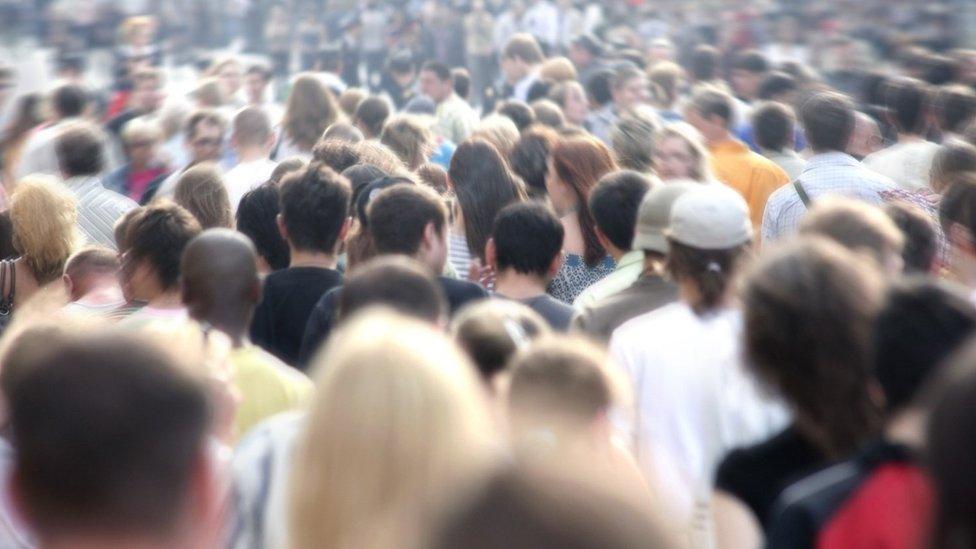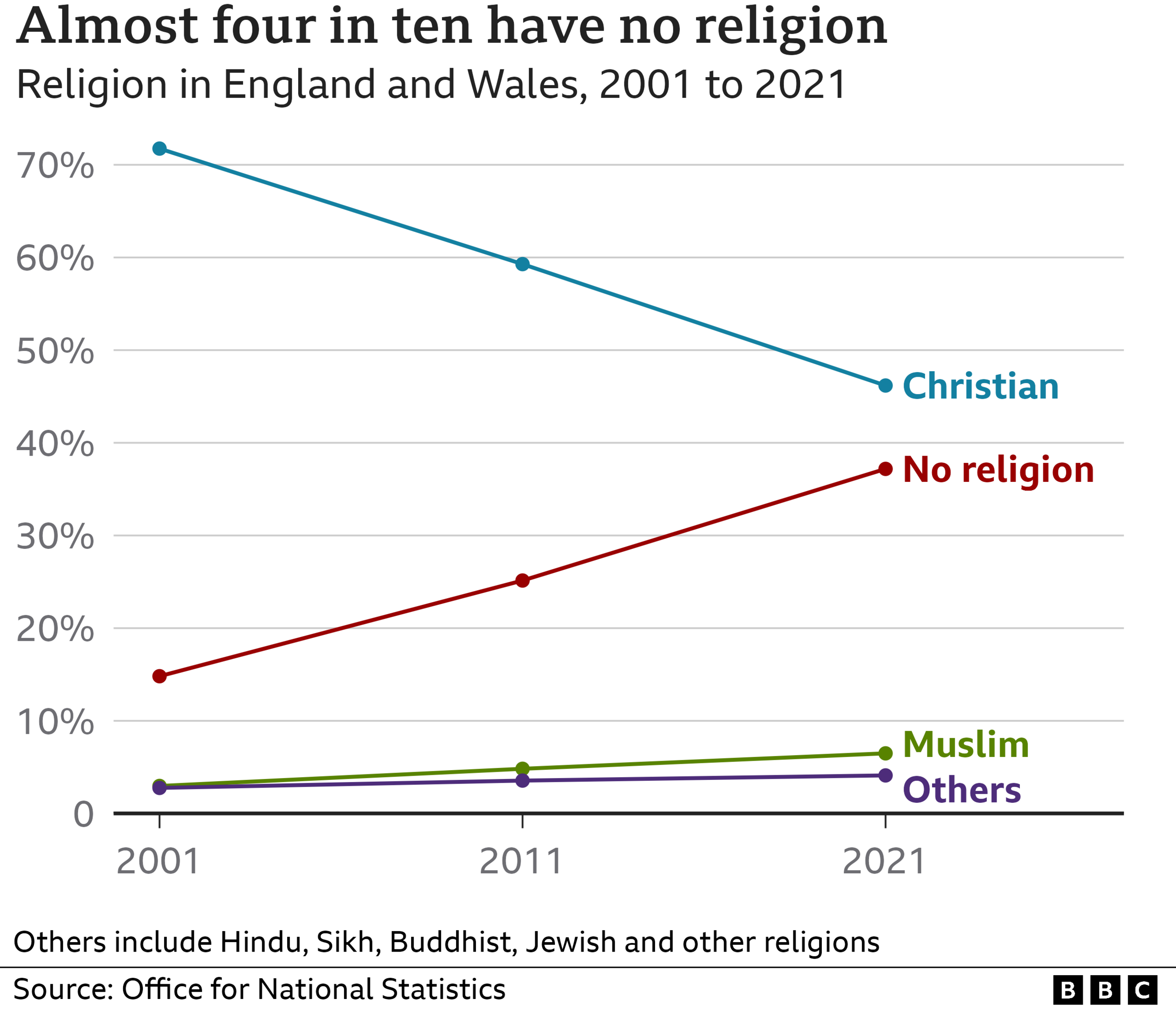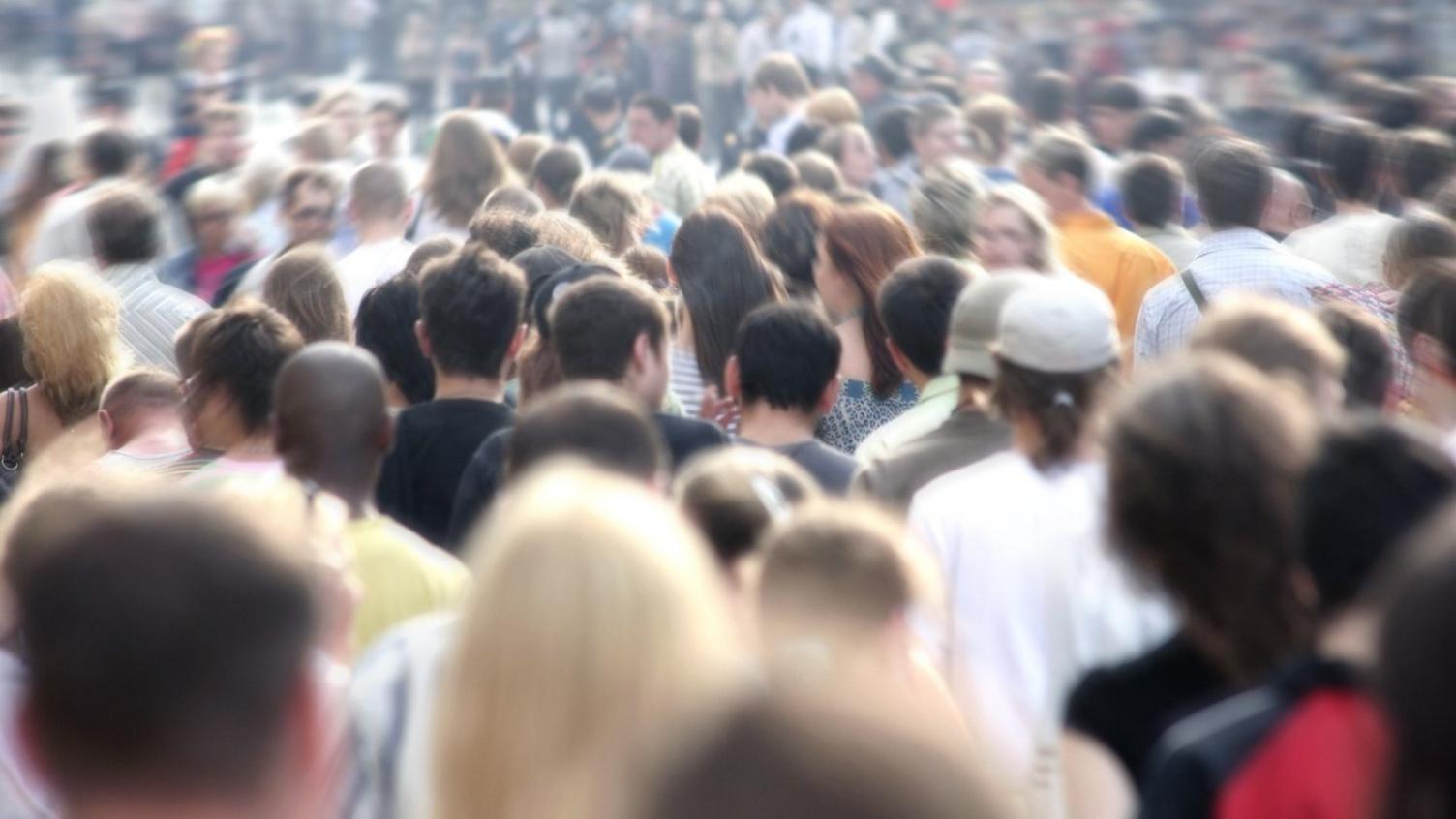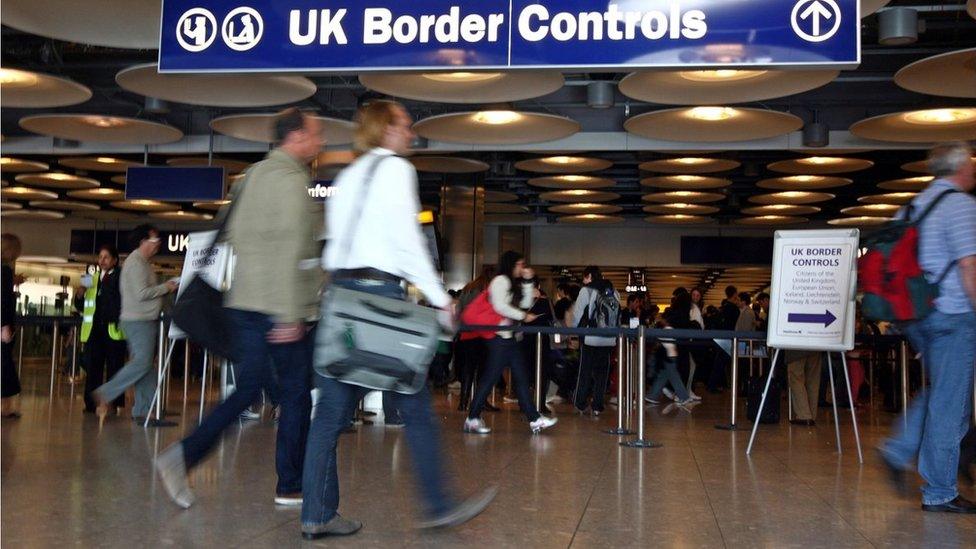Less than half of England and Wales population Christian, Census 2021 shows
- Published

For the first time fewer than half of people in England and Wales describe themselves as Christian, the Census 2021 has revealed.
The proportion of people who said they were Christian was 46.2%, down from 59.3% in the last census in 2011.
In contrast the number who said they had no religion increased to 37.2% of the population, up from a quarter.
Those identifying as Muslim rose from 4.9% in 2011 to 6.5% last year.
People were also asked about their ethnic group and national identity - the responses of which were released in the results just published., external
The census is carried out every 10 years by the Office for National Statistics (ONS).
People were asked the broad question what their religion was rather than being asked more specifically about their beliefs or religious practices, in the voluntary question included in the census since 2001.
Ticking "no religion" does not mean having no beliefs, says Prof Linda Woodhead, from King's College London.
"Some will be atheist, a lot will be agnostic - they just say, 'I don't really know' - and some will be spiritual and be doing spiritual things." she said.

Separately when people were asked about their ethnic group, 81.7% of residents in England and Wales identified as White, down from 86.0% a decade earlier, according to the census.
And 74.4% of the total population identified as White as well as English, Welsh, Scottish, Northern Irish or British.
The next most common ethnic group was Asian, Asian British or Asian Welsh accounting for 9.3% of the overall population - 5.5 million people, up from 4.2 million.
The number of people identifying as Black, Black British, Black Welsh, Caribbean or African was 4% of the population, up from 3.3%, taking the figure from 1.9 million to 2.4 million.
One in 10 of households across England and Wales are now made up of people from two or more different ethnic groups - an increase from 8.7%.
And Luton, Birmingham and Leicester. are among 14 areas in England where people identifying as White are now in the minority.
In terms of national identity, among those who described it as not being the UK, the most common response was Polish, followed by Romanian.


It may feel like a pivotal moment, with the census showing fewer than half of people in England and Wales identifying as Christian, but for years social surveys have shown a rapid rise in those who define themselves as having no religion, often reporting that as the largest category - that is not the case in the census data.
With its very simple optional question, "What is your religion?", the census does not illustrate the range of 22.2 million people in the "no religion" category; from those who do not believe in God at all to those who do in some form, or believe in the power of prayer and an afterlife or are spiritual in some way.
The trend away from faith is not something that is reflected in major non-Christian religions which all saw a rise, with more than 1.2 million more people identifying as Muslim in England and Wales in 2021 as compared to 2011. As with ethnicity, patterns of family size and immigration are seen as contributory factors.
Of those who chose to write in their answer under the "any other religion" option, the largest group identified as Pagan, with a tenfold rise from 2011 in those identifying themselves as Shaman.

In terms of religion, London is the most religiously diverse region of England, with just over 25.3% of people reporting a religion other than Christianity.
And south-west England is shown to be the least religiously diverse region, with 3.2% selecting a religion other than Christian.
The figures also showed differences in nations - in England alone, 37.2% of people said they had no religion, while in Wales this rose to 46.5% from 32.1% in 2011.
Following the announcement, the Archbishop of York said the country had "left behind the era when many people almost automatically identified as Christian".
The Most Rev Stephen Cottrell said: "It's not a great surprise that the census shows fewer people in this country identifying as Christian than in the past, but it still throws down a challenge to us not only to trust that God will build his kingdom on Earth but also to play our part in making Christ known."
Your device may not support this visualisation
He said that, facing a cost-of-living crisis and war in Europe, people still needed spiritual guidance, adding: "We will be there for them, in many cases, providing food and warmth."
Chief executive of Humanists UK Andrew Copson added the figures should be a "wake-up call which prompts fresh reconsiderations of the role of religion in society".
"No state in Europe has such a religious set-up as we do in terms of law and public policy, while at the same time having such a non-religious population."
The census explores how British society is being shaped from people's answers to questions about themselves, their household and their home.
The results help organisations make decisions on planning and funding public services including transport, education and healthcare.
The 2021 survey, carried out on March 21 last year, was filled out by more than 24 million households across England and Wales. More data from the census is set to be published in stages over the next two years.
Scotland's census was due to take place in 2021 but was delayed by a year due to the Covid pandemic.
- Published28 June 2022

- Published29 November 2022

- Published31 October 2022

- Published24 November 2022
